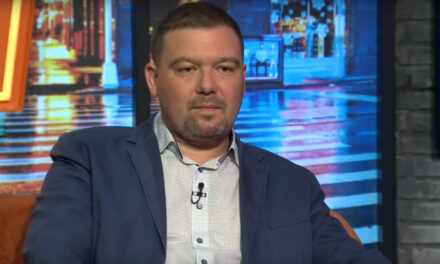The United States will regret its commitment in the same way as it did fifty years ago - predicts in his analysis the Australian specialist commentator of SkyNews, the dean of Curtin University. Professor Joseph M. Siracusa drew a parallel with the withdrawal from Vietnam in connection with the war in Ukraine.
Joseph M. Siracusa, dean of Curtin University in Perth, an analysis on the SkyNews interface, in which he outlined the effects of the Russian-Ukrainian war on the United States from an American perspective. The professor reminded: fifty years ago, in the spirit of the Paris Peace Conference, the United States withdrew all its troops and military advisers from Vietnam, which has been remembered as the biggest American failure ever since.
Between 1961 and 1975, 141 billion dollars were burned in the Southeast Asian country, and the loss in American lives was 58,000, not to mention the 241,000 in South Vietnam, and the loss of over one million on the other side.
Professor Siracusa cites the analysis of the Quincy Institute for Responsible Statecraft, a think tank, according to which the withdrawal from the Vietnam War is still relevant today: in the matter of the "betrayal" of an ally, "which applies not only to the withdrawal of the United States from Afghanistan, but also to the involvement of the United States in Ukraine and the to an implicit commitment to persistence.”
The author believes that the meaning and lessons of the Vietnam War roughly show "how Washington will abandon its proxy war with Russia in Ukraine and then sell it to the American people" .
According to the author, there is a complete consensus that the United States could not win the Vietnam War, only the search for the reasons why a nation with a population ten times as large and using high technology could not impose its will on a smaller and less developed country. According to him, due to the resistance to death of the resisting Vietcong peasant soldiers (journalist Walter Lippmann's analysis), the false idea of the situation and "national aberration" (historian Louis J. HaIIe's opinion), and "however diligent the prime minister, however attractive the people", Washington should be more cautious should have been and held to certain minimum standards of effectiveness before committing such large resources to aid South Vietnam (analyst Chester L. Cooper).
Or, as the then foreign minister Henry Kissinger put it: "we entered too easily, we exited too late" from the war, and as a lesson he learned: "let's be very careful when making commitments, but strictly adhere to our commitments".
According to Professor Siracusa, "in fact, the withdrawal of the United States from the unwinnable conflict in Ukraine will take place in much the same way."
Source: Mandiner.hu
Author: Zoltán Veczán
Image: Pixabay













